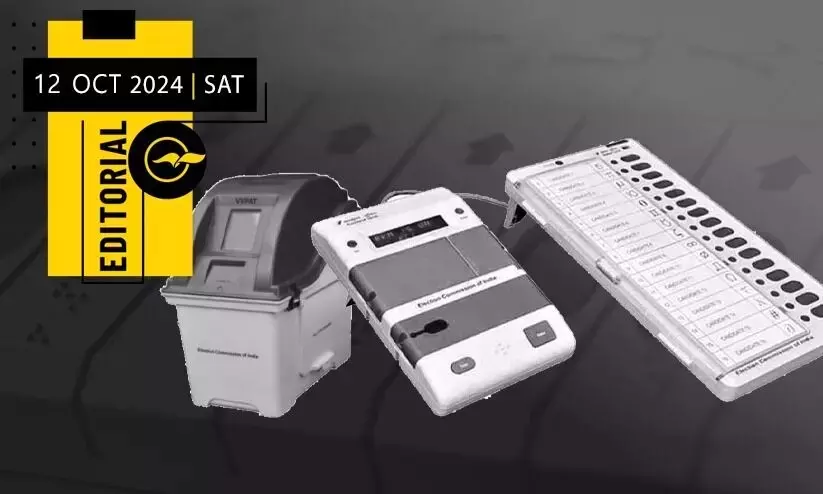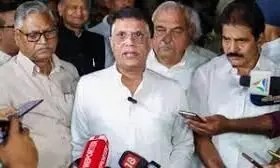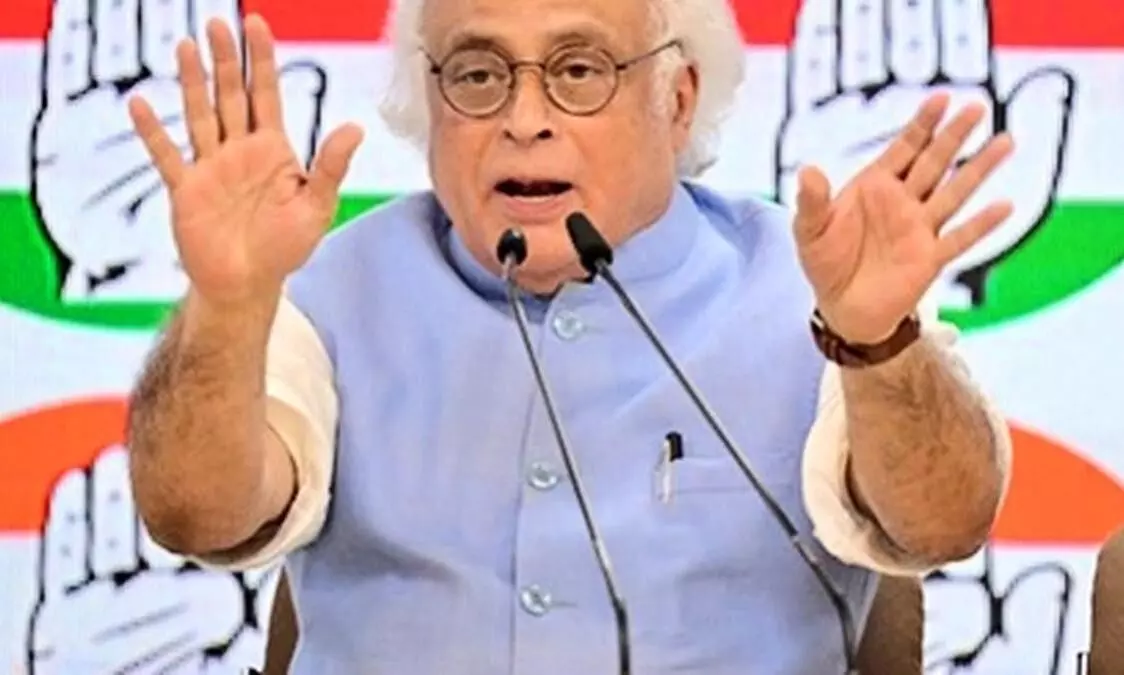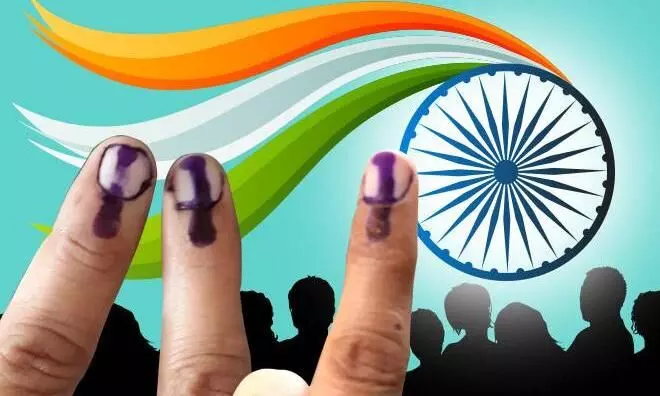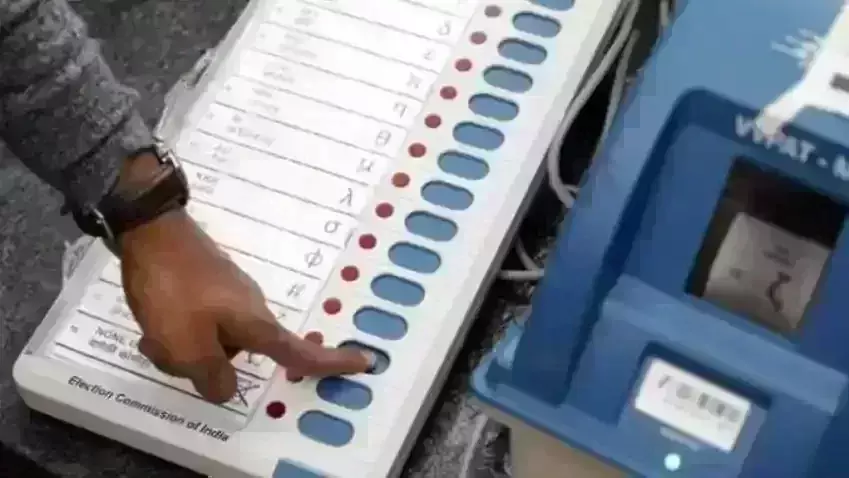
When EVMs once again come under shadow of doubt
text_fieldsWith the intriguing fluctuations in the Haryana election results, once again questions have been raised about the credibility of EVMs. These discussions have led to renewed calls for a return to the traditional paper ballot system. Anomalies in the vote-counting process, technical glitches, and discrepancies in voter turnout have all contributed to this renewed debate about the reliability of EVMs. Media personnel and election experts, who had been closely following the situation, had predicted a strong anti-incumbency sentiment in Haryana and a potential change of government. Initial trends in the vote-counting process seemed to corroborate these predictions, with the opposition Congress party taking a significant lead in over 65 of the 90 assembly seats, while the ruling Bharatiya Janata Party (BJP) was trailing with only 15-20 seats. However, a sudden and surprising turnaround occurred, with the lead shifting in favour of the BJP.
In certain regions, it is common to see disparities in seat allocations and instances of rigging during elections. Predictions often turn out to be entirely wrong. At the same time, it's undeniable that there's a lack of large-scale, statewide shifts that could significantly alter the overall outcome. This is also evident in voting patterns. The difference in the percentage of votes secured by the two major parties is usually less than one per cent; however, there's a significant disparity in the number of seats they win. While factors like Jat and regional differences can be pointed out, the discrepancy between votes and seats is quite surprising, as noted by election observers.
Even though the Congress approached the Election Commission, raising doubts about unexpected changes in the results and technical issues, including the battery charge in the voting machines, their plea was rejected. The Congress had pointed out that the display board of the voting machines used for voting would not show a 99% charge, but only 70%, and that in at least 12 seats counted by the machines with a 99% charge, the party suffered defeat. However, the Election Commission, which repeated its stock response that irregularities or manipulations in the voting machines are not possible, criticized the Congress for questioning the results.
This is not the first time objections have been raised about voting machines. The matter has even reached the Supreme Court. Demands such as 'all VVPAT slips should be cross-checked,' 'voters should be allowed to deposit these slips in the ballot box after voting' and 'paper ballots should be reinstated' have been brought before the court. However, the court, fully accepting the Commission's arguments, dismissed the petitions. It also remarked that vested interests were behind these petitions, aimed at weakening the country’s progress.
There was criticism regarding the results of 20 seats in the recent Odisha Legislative Assembly elections. Similarly, in the Lok Sabha elections, there were criticisms about discrepancies between the votes cast and the votes recorded in the machines for 79 seats. A political and economic expert, Parakala Prabhakar, pointed out that the difference between the votes cast and counted in these 79 seats across 15 states was as high as 5 crore. The commission has not provided any clarity regarding these figures or the criticisms. Thrissur in Kerala is also included in these 79 seats. The number of these seats was crucial in forming the government in both Odisha and at the Centre.
Free and fair elections are indispensable in a democratic country. It is the duty of the Election Commission to ensure transparency in a manner that leaves no room for even the slightest doubt, whether well-founded or not. It is not at all befitting for a democracy when the commission's procedures and polling are shrouded in doubt. The commission must remain vigilant to avoid delays in providing the final vote count and announcing the results, ensuring accuracy throughout the electoral process. The Commission must also be prepared to comply with the court's orders in the EVM case, such as adding the marked unit, sealing it, and arranging a slip-counting machine. At the same time, the opposition's stance of claiming righteousness when they win and criticising when they lose is also incorrect. In recent times, the Opposition has raised this allegation in many elections. Instead of making accusations and then retracting them, the Opposition has a responsibility to substantiate their claims with supporting evidence. They also have to intervene and address the concerns of the public. One can hope that the Commission will focus on ensuring that the upcoming elections are free from allegations. Even a thin claim that the elections are not fair would leave a permanent blemish on the world's largest democracy.




